Drunken driving simulator Makes Students Think Twice
Portales High School students got to spend a class period drinking and driving in a virtual simulator Tuesday.
The effects were synthetic, but the consequences were real to the students who went through UNITE’s Arrive Alive high-tech distracted driving and drunken driving education program.
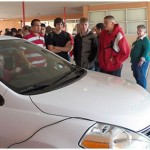 “It affects everyone around you,” said Jacob Nunse, 16, about drinking and driving, something he promises not to do because he has career aspirations of becoming a doctor.
“It affects everyone around you,” said Jacob Nunse, 16, about drinking and driving, something he promises not to do because he has career aspirations of becoming a doctor.
Representatives of the organization Arrive Alive provided students with an experience that they say is like none other.
After they introduce the organization and share out facts about the dangers of drinking and driving as well as distracted driving, they allow students to get in a vehicle and experience the effects.
The steering wheel and the gas and break pedals of the car are hooked up to a computer. A screen placed in front of the car displays the students’ driving.
The first run through, Nunse and other students experienced driving virtually sober. The second time through, students experienced the effects of drinking and driving or texting and driving.
“When you turn regularly, (the car) will turn, but when you were drunk it took a while to react or it overreacted,” Nunse said about the experience.
Rudy Viera, 16, agreed that his reactions while driving drunk were delayed.
“They can drive through a simulated world in a safe environment so that they can be drunk or texting or whatever dangerous thing they want to and figure out how dangerous and different it really is,” said Ryan Barnes, the driving simulator lead specialist with Arrive 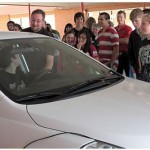 Alive.
Alive.
“After they have crashed or ran too many red lights or killed a pedestrian, we stop the simulator and let them get out of the car and then we write up a ticket as well as go over information that might be pertinent to them,” Barnes said.
Some of the things Barnes explained to Nunse and other students while writing them a ticket was, the cost of a DUI, the possibility of probation resulting in the lack of a social life, and having a hard time getting a good job with a criminal record.
“I don’t want a DUI because of all the things you can’t do with one on your record,” Nunse said.
Nunse said just the guilt of doing the action is reason enough not to but if a driver killed somebody, he says they have to consider that person’s life they took and their family.
“It’s important not to drink and drive so you don’t have to go through all that,” Nunse said.
Viera agreed with Nunse that all of the consequences of drinking and driving are not worth it.
“It’s harder for you to get jobs,” Viera said. “Just don’t do it, plain and simple.”
Ashley Evans, 14, may not be old enough to legally drive but she said her experience with Arrive Alive’s simulator made her consider changes she plans to make before she can drive.
“I’ll definitely think twice before texting and driving. I’m always on my phone,” Evans said. “It’s a lot more distracting and I didn’t think about it before but I hit a person while I was texting in the simulator.”
Evans plans to become a psychologist and she says having a criminal record won’t help anyone with their career goals.
“If you have a DUI, they can find someone with your exact same talent that doesn’t have one on their record and they would obviously pick them over you because you have a criminal record,” Evans said.
“Most people make the big decisions they have about driving after making big mistakes and having to pay those consequences,” Barnes said.
Barnes says he’d rather have students make those mistakes in the simulator than in real life.
“The people who need this experience most are definitely teenagers,” Barnes said. “The odds of dying in a car as a teenager are higher than dying in any other way that a human can die.”

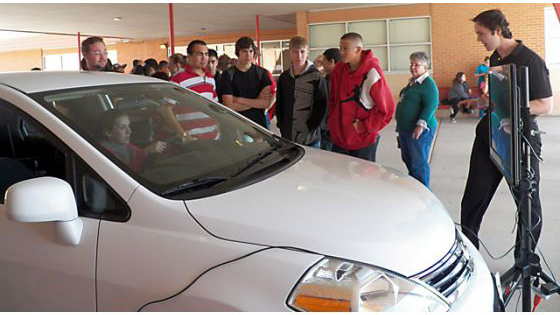
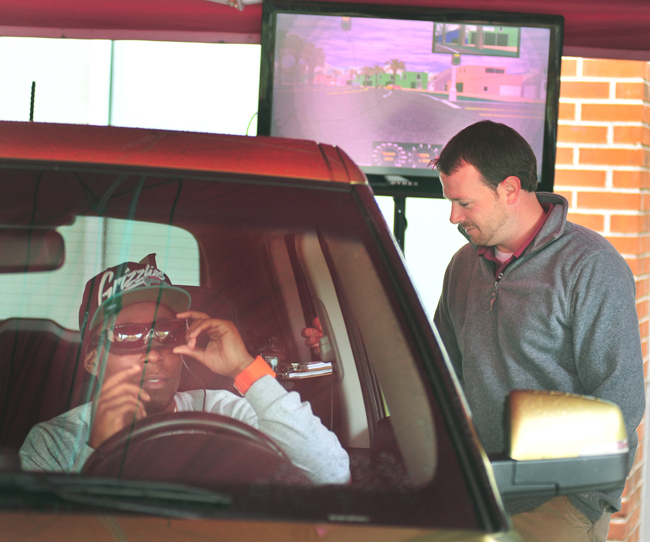
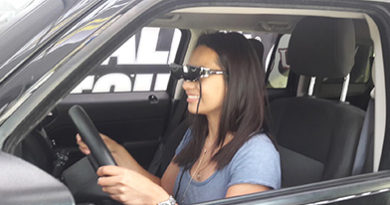
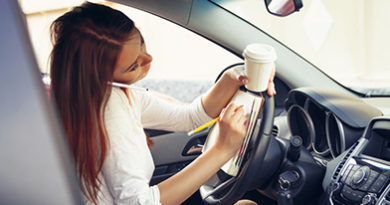
You must log in to post a comment.